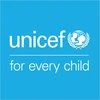
UNICEF
Overview
UNICEF (United Nations Children's Fund) is a leading humanitarian and development agency working globally for the rights of every child, especially the most disadvantaged. It works in over 190 countries and territories to protect children's rights, help them meet their basic needs, and expand their opportunities to reach their full potential. UNICEF focuses on areas such as child survival and development, basic education and gender equality, HIV/AIDS, child protection, and emergency relief.
About Us
Established in 1946, UNICEF initially focused on providing emergency food and healthcare to children and mothers in countries ravaged by World War II. It has since broadened its mission to encompass the long-term well-being of children and advocate for their rights globally. Funding for UNICEF's diverse programs comes from a variety of sources, including governments, private donors, and corporate partnerships. UNICEF operates through collaborative efforts, working closely with governments, non-governmental organizations (NGOs), and fellow UN agencies to effectively implement its programs and achieve its overarching goals for children's welfare. The organization's governance is overseen by an Executive Board, which comprises representatives from 36 member states, ensuring a diverse and representative leadership structure. This board guides UNICEF's strategic direction and ensures accountability in its operations worldwide. UNICEF remains committed to its founding principles, adapting its strategies to meet the evolving challenges faced by children in an ever-changing world, striving to create a brighter future for every child, everywhere. This involves not only direct aid but also systemic changes to improve children's lives on a large scale, focusing on areas such as education, health, protection, and equality.
Vision
A world in which every child survives, thrives, and fulfills their potential.
Mission
To advocate for the protection of children's rights, to help meet their basic needs and to expand their opportunities to reach their full potential.
Culture
UNICEF's organizational culture is deeply rooted in a commitment to upholding children's rights, promoting equity, and fostering innovation. This commitment translates into a collaborative and inclusive work environment where every staff member is empowered to contribute their unique skills and expertise towards achieving UNICEF's core mission of improving the lives of children worldwide. A key tenet of UNICEF's culture is its strong emphasis on diversity and the active promotion of gender equality across all levels of the organization. This commitment extends to its operational practices, where accountability, transparency, and unwavering ethical conduct are paramount. UNICEF strives to maintain the highest standards of integrity in all its activities, ensuring responsible and effective stewardship of resources. Furthermore, UNICEF recognizes the importance of continuous learning and improvement in enhancing its ability to serve children effectively. The organization actively fosters a culture of ongoing professional development and knowledge sharing, enabling staff to stay at the forefront of best practices and adapt to evolving challenges in the field of child welfare. This dedication to continuous improvement ensures that UNICEF remains a relevant and impactful force in advocating for and protecting the rights of children globally.
Headquarters
New Delhi
Specialties & Industries
Open Positions
No open positions at the moment
Check back later for new opportunities